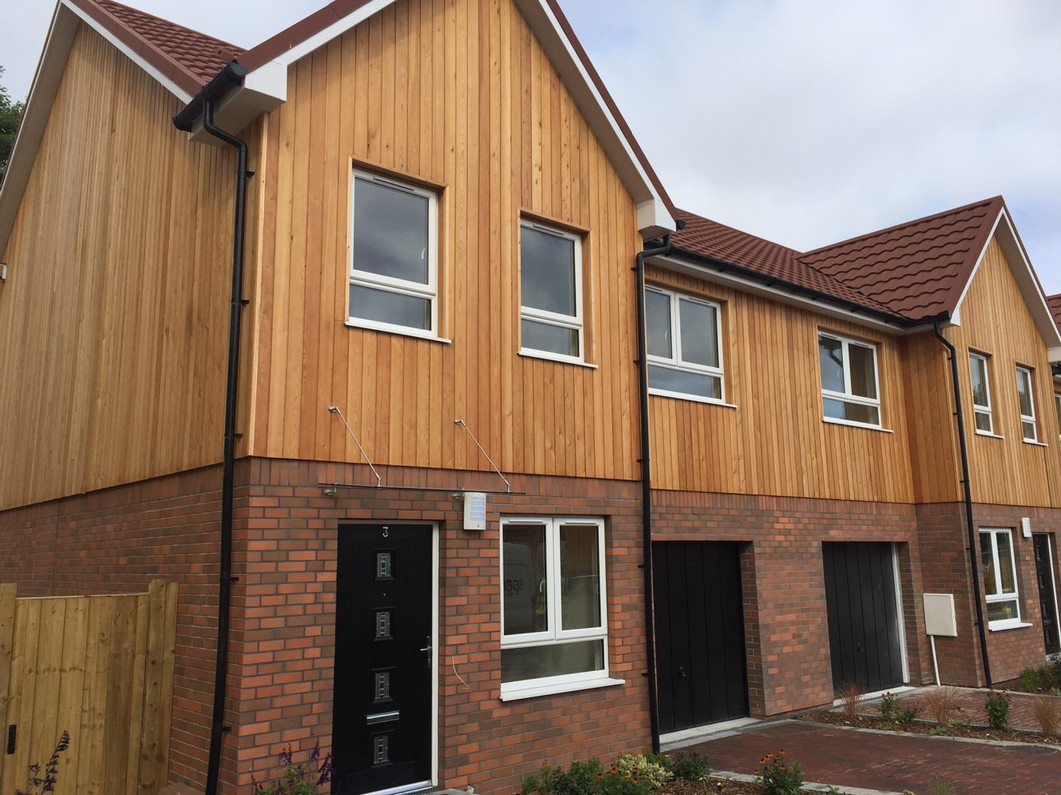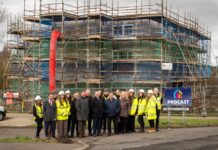
ENEVATE Homes, a provider of modular homes based in North Lanarkshire, has announced the business has seen turnover increase by 118% this year.
The company, which works with housing associations across Scotland and Britain, revealed it builds ‘good-quality homes at rapid speed’ and believes modular could help alleviate Scotland’s housing ‘crisis’.
Scotland’s deputy first minister Shona Robinson recently visited the firm’s 150,000 sq. ft factory in Netherton, Wishaw, to discuss the nation’s plans for modular housing.
Enevate Homes, which was founded in 2016, added that it has seen an influx of housing associations, including Dundee and Greenwich, approach them for factory tours and to learn about modular homes in recent months.
Enevate can produce an average-sized home in just 30 days at its factory.
MD Gary Mayatt said, “Despite the benefits of modular housing, many providers have been loss-making, with momentum stalling and leading to several companies falling into administration last year. However, the solution to the housing crisis appears to be gaining serious momentum since February this year with significant interest from ministers and housing associations.”
Enevate Homes has reported a turnover rise from £3.9 million last year to £8.5 million this year, with 250 homes ordered in recent months. The company is looking to increase its workforce at its Wishaw factory by 30 to 40 additional employees over the coming months to cater to the influx of new homes and is working alongside the Ministry of Defence and the Career Transition Partnership to give military veterans the opportunity to retrain and join the business.
The company has also appointed a new finance director, Elaine New, and a new digital director, David Philp, to help support continued expansion.
Gary added, “We have seen a significant uptake in modular homes — which is vital, especially if Scotland is to tackle some of its biggest issues, such as an ageing workforce, a mismatch between the supply and demand of new housing and the urgent need to gear up the economy to meet net zero targets by 2050.”








